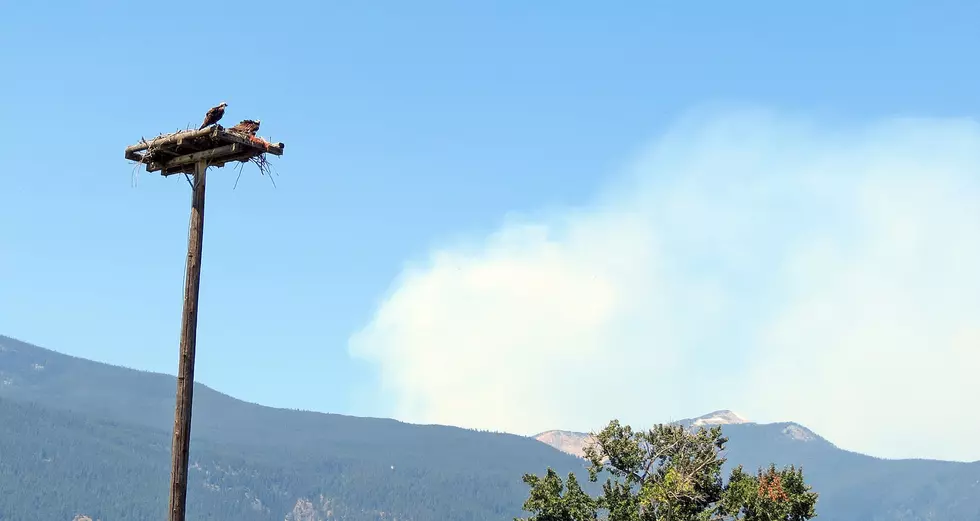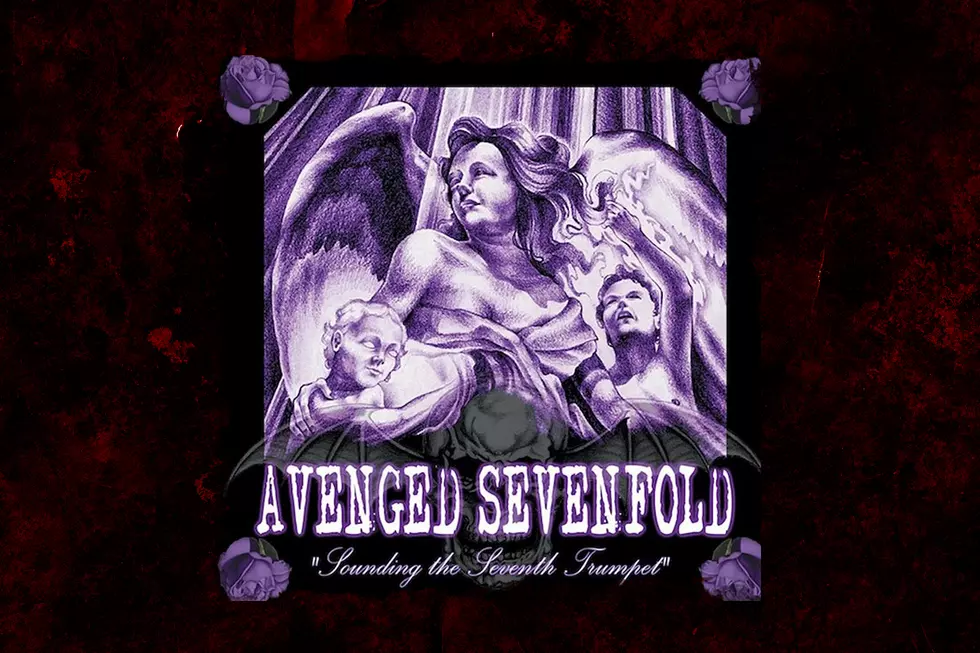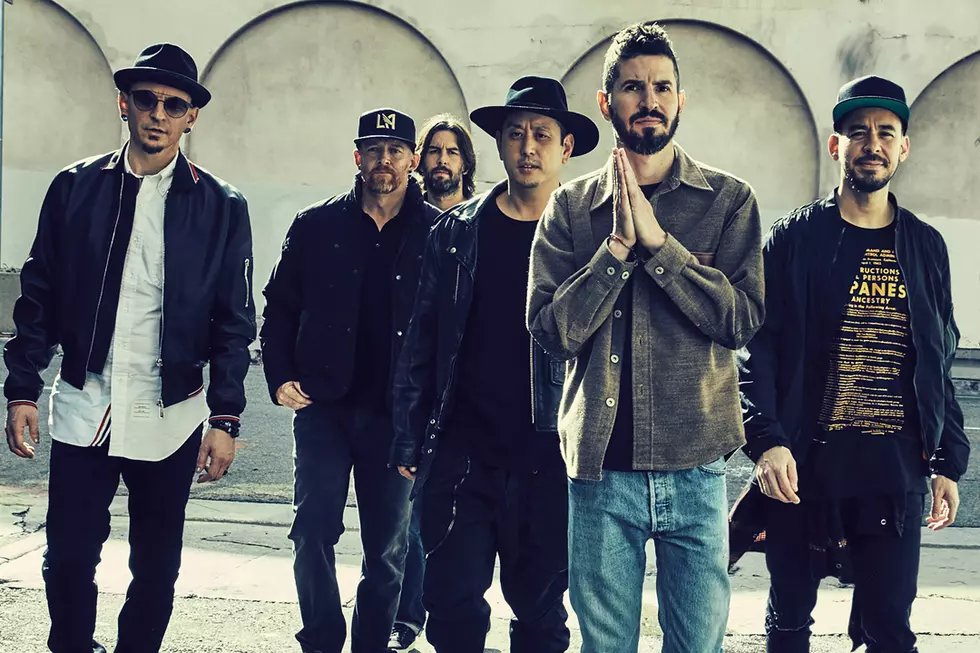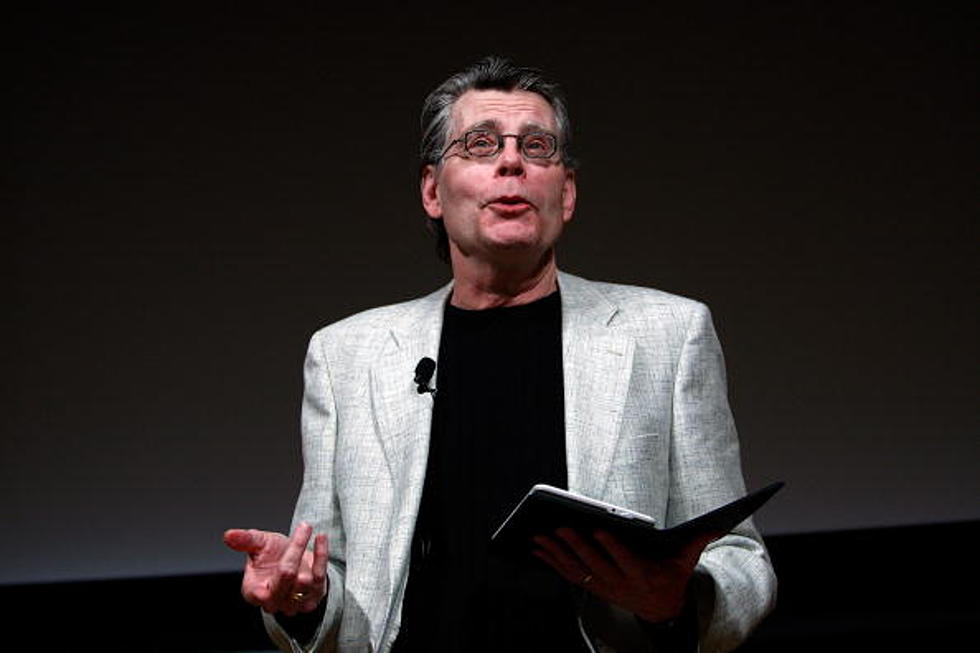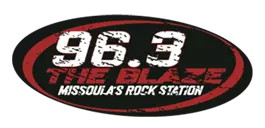![Gene Hoglan Talks Neil Peart Influence as Drummer and Lyricist, New Galaktikon Album + More [Interview]](http://townsquare.media/site/366/files/2017/01/Gene-Hoglan-Atomick-Clock-Strikes-Two.png?w=980&q=75)
Gene Hoglan Talks Neil Peart Influence as Drummer and Lyricist, New Galaktikon Album + More [Interview]
Drummer extraordinaire Gene Hoglan was the latest guest on Full Metal Jackie's weekend radio program. He spoke about his latest instructional DVD, taking major influence from Rush's Neil Peart as both a drummer and lyricist, the forthcoming album from Brendon Small's Galaktikon, the grueling aspect of touring South America having to fly to every show and more. Check out the chat below.
How are you?
I am excellent. I gotta tell you, it's a real honor to be on your show.
Awesome. You've released two instructional DVDs that feature commentary and show how to play some of your drum parts. What's the most rewarding thing about sharing your expertise?
All the money that it makes me. No, I’m joking. One thing I try to do with these DVDs is I know that they are quasi-instructional, but I do try to make them for everybody. I try not to load it up with so much drum speak that it’s just exclusive to drummers only, inclusive to drummers only. I try to include everybody in it. So I try to make it entertaining and I try to make them as well rounded as I can so that whether you’re — if you’re a drummer, great, there is going to be a lot of stuff for you. If say, you’re a musician but not a drummer, there is a lot of cool stuff for you as well. And if you are not even a musician, but you want to be entertained for a couple of hours, then that’s really the audience I try to target is everybody. So like, I do have so many people that order it and they write back, I’m not even a drummer, I’m not even a musician and I really enjoyed this. And it’s like, "Perfect, bingo." That’s what I like to hear.
You auctioned off a drum kit you've used with Opeth, Unearth and Strapping Young Lad with part of the proceeds going to charity in memory of Chuck Schuldiner and Michelle Meldrum. Why were Michelle and Chuck important to who you were as a musician and a person?
Well I guess first of all, starting with Michelle, she was my very first guitarist and we were teenagers in a band together. I was like 17 and she was 16 and that helped get me my start — my first band rehearsing all the time. At that moment we hadn’t played any gigs, but Michelle was very integral in the rest of my career in the fact of when we had our little band War God together, my future band Dark Angel was searching for a drummer and they approached me, "Hey do you want to come and jam with us?"
And I was like I have my band here that I want to do stuff with and Michelle was very important when she kind of kicked me out of the nest. She was like, "Hey Dark Angel is going places. We haven’t done anything yet. We’ve recorded a tiny little demo. These guys you know, they have an album in the can, they’re playing lots of shows and go out and do it. Don’t regret saying no to this when you can get out there and do something with these guys. Who knows where this will lead?" And sure enough it ended up leading to a fantastic career.
And later on after Dark Angel ironically, Chuck being the metal legend that he is, and the person whom I next worked with outside of Dark Angel. I spent eight years with Dark Angel and then pretty much immediately after Dark Angel I connected with Chuck and we made Death’s Individual Thought Patterns album and also Death’s Symbolic record together. And working with Chuck helped guide me in my path of drums because with Dark Angel I was writing everything — [it] kind of evolved into my project over the course of time. And I was writing all of the music and all of the lyrics and doing all of the biz and doing all the interviews and all the press and everything for it.
And with Death the only thing I had to do was concentrate on drumming. So I let my ya-ya’s out with Death. I got to really explore a lot of parameters of drums that I wasn’t even concerned with with Dark Angel. But since I had the free time and, "Hey Gene, the only thing you have to concentrate on is playing some cool drums," then that’s where I was able to take my playing and my career from there.
Losing both friends is a great loss. May 21 was the ninth anniversary of Michelle’s passing and Chuck also had a birthday. So you know, this auction, it’s important. It was a way to alleviate myself of some gear as well as try to do a good thing for a good cause in the name of two very talented musicians and wonderful people.
Most people immediately think of you as a drummer, but you were also a lyricist when you started your career with Dark Angel. What's similar about writing lyrics and coming up with drum parts for different sections of a song?
Good question. Well, along with writing lyrics, a lot of lyricist say, "Gosh, a drummer who's a lyricist...," who comes to mind of course is Neil Peart from Rush. I'm not sure how he does it, I'm not sure if he — if he writes a poem and then hands it over to Geddy [Lee] and then Geddy figures out where to put the lyrics in?
But with Dark Angel, for instance, I would write the vocal patterns as well. I would write the lyrics. I mean, I would write the cadences that the lyrics would be going in. That was all me and Ron, my singer Ron Rineheart. He would augment things that were most comfortable for him. But for the most part, I would give an entire piece over to Ron -- lyrics, melody lines, vocal cadences all completed. I remember writing in the early days — there wasn't a lot of melody involved. You would try to write cool cadences. What a cadence is, is just the delivery of the lyrics and it wasn't like we were singing, nothing like that. So it was like, "Okay just try to bark out these vocals with a cool little drum type percussive cadence to the vocals."
It was rather similar, trying to write a drum part that is cool, try to write a vocal part is cool — usually involved some sort of... it tended to lean towards the vein of percussiveness rather than melody. So there you go, good question.
Much of your career has been heavy/extreme and fast metal bands but you've described yourself growing up as a nerdy Rush fan. What did you learn from listening to Rush that you were able to apply to your own music?
Well, I guess one thing for me and I realize as I've grown up I've met other musicians and maybe they're not the biggest Rush fan because they were into the things that Rush were influenced by. But for me, Rush, there were just no rules. I got into Rush before there was a whole lot of radio play on them and I realized that their Moving Pictures record seemed to really catapult them into a lot of radio play and they had a little bit of radio with "The Spirit of Radio" from Permanent Waves, the album that preceded that. But, I was into 2112 and Farewell to Kings and Hemispheres. A lot of those songs weren't designed for the radio, therefore there was no radio play on it. When you design something that's not gonna be played on the radio, I think that gives you a real carte blanche to just let your freak flag fly. Let there be no rules.
Peart came up with so many great drum parts that were so memorable yet they were understandable from a drum standpoint. You'd have guys like Terry Bozzio playing with UK or Frank Zappa where a lot of his drum parts were amazing too and they were so amazing that it would just get you kind of depressed. Like, "Gah, I could never figure that out."
But Neil Peart was a guy that — like, this is pushing the realms. This isn't just plain old rock drumming, but it's understandable. I could grasp every single thing that Peart was doing and I loved their - remember, I'm like eight, nine,10, 11 when super getting into Rush. Their lyrics really appealed to me, like, "Wow, they aren't just singing about partying or getting chicks on the weekend. There's something of merit, there's some heady stuff happening with their lyrics." So, I guess that was just my big influence, their whole approach. Then shortly after being a Rush fan, that's when I started getting really into all the super duper heavy metal stuff like that. So it was just a natural progression for me, for myself.
Gene, Testament goes back on tour this summer in South America. They've got some dates in Central America and Europe. What do you enjoy about traveling and playing in different countries?
Getting to play South America, we just finished our big long U.S. run. It was about a six-to-seven week run. That was amazing because you get to play all these places in the States that you've played a bunch of times and the crowds are always awesome. Then you take it to like, say a South America where things just get upped a notch in terms of the intensity of the crowd. In The States we travel on a bus, in South and Central America, we fly to every show so there's always a whole bunch of fans hanging out at the airports. They figure out the flight that you’re on and they'll be there with the banners and sometimes it gets a little crazy.
You play a place for instance like Santiago, Chile. I swear not to take anything away from anybody else on the planet but I swear, Santiago, Chile is about the most metal place in the world. Every band that's ever played Santiago was always really stoked to play it and really happy afterwards. The crowds are great and that's the way it is for bands like Testament, bands like Death or Death To All or whichever — any of my bands... Dark Angel that have been down there.
There's so much love and intensity coming from the audience that it's really hard to ignore. That's the great thing about playing places like South and Central America. The unfortunate bit about it is, you do have to fly to every show so it's not like you get to get on your comfortable bus at the end of the night and sleep until soundcheck the next day. You get back to your hotel at 1 or 2AM and you've got a 5AM lobby call to make it down to the airport by 6:30 or 7 to make the 9AM flight to just — it's like a groundhog day of brutality every day in terms of the physical toll it takes on you. Australia is the same way. All us guys in bands have to kind of giggle when people go, "Wow! You get to fly to every show? That must be so glamorous!" It's like, "Oh my god there's no glamor in this," but we love playing live so you do what you have to do in order to get your tour done. But we're in a very fortunate position to be able to do it. We all recognize that, totally.
Brendon Small's new Galaktikon albums seems to be a continuation of Dethklok. What's unique of the working combination of you, Brendon and bassist Bryan Beller?
Well, I'm not sure what a continuation of Dethklok it might necessarily be. I will tell you one thing about Galaktikon, it's called Galaktikon II: Become The Storm. It's actually just an extension of Brendon, really. It's so much more than an extension of Dethklok. It's kind of an amalgamation of — there's definitely some Dethklok influences, I'd say. There's definitely some Galaktikon influences as well as I don’t know if you'd remember that Doomstar Requiem rock 'Klok opera that we put out a couple of years back. There's even some elements of that in it. It's pretty much — I can see this as Brendon Small moving forward, moving past Dethklok with a lot of the same elements. If you enjoyed Dethklok, you’re really going to enjoy this record. If you enjoyed the first Galaktikon record, or the Doomstar Requiem, you’re really going to enjoy this record too. It's just got something for everybody on it.
Appreciate you taking the time.
Just to wrap up real quick, if anyone is interested in getting my latest DVD it's called The Atomic Clock: The Clock Strikes Two. It's available at Hoglandindustries.com it's also available at Amazon and also at any gig that we ever play — I've always got some for sale there too. It's worth watching, it's more than just some boring old instructional DVD.
Thanks to Gene Hoglan for the interview. Pre-order your copy of Brendon Small's Galakitkon's 'Galaktikon II: Become the Storm' at Amazon or digitally through iTunes and get the latest album from Testament, 'Brotherhood of the Snake,' at Amazon or iTunes as well. Follow Gene Hoglan on Facebook to keep up with everything the drummer is doing and find out where you can hear Full Metal Jackie’s weekend show at this location.
Where Does Gene Hoglan Rank Among the Top 66 Hard Rock + Metal Drummers of All Time?
Gene Hoglan Plays 'Wikipedia: Fact or Fiction?'
More From 96.3 The Blaze
